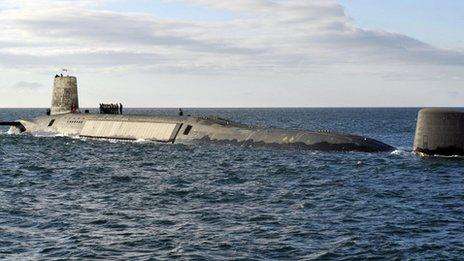Lord Kinnock: Corbyn must back Trident to avoid defeat
- Published
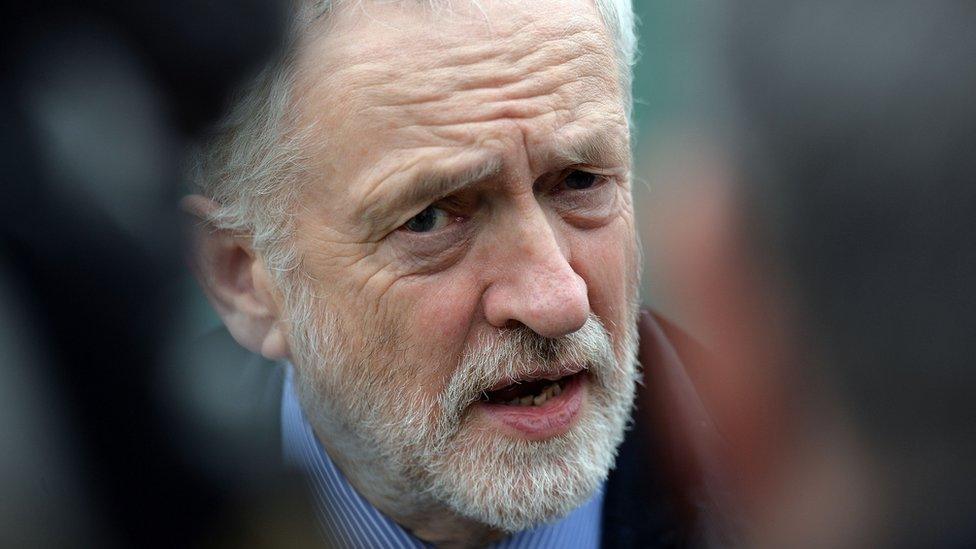
Labour leader Jeremy Corbyn is a long-standing opponent of Trident
Former Labour leader Neil Kinnock has issued a stark warning to Jeremy Corbyn that if he continues to oppose the renewal of the Trident missile system, Labour will lose the next election.
Lord Kinnock told me in an interview for BBC Radio 4's Analysis programme that to have any chance of winning, Mr Corbyn will have to stick with the present policy of multilateral nuclear disarmament.
"No party can win a national United Kingdom election if it sustains a stance which means unilateral nuclear disarmament," he said.
The former cabinet minister Peter Mandelson also claimed that for Labour to switch back to a unilateral policy would be electoral suicide.
"The British public have never been and are never going to be unilateral nuclear disarmers. It is just something that you could never sign them up for," Lord Mandelson told me.
'Integrity versus obstinacy'
Labour's present multilateral policy goes back nearly 30 years. The party lost to Mrs Thatcher's Conservatives in two landslide elections in 1983 and 1987 supporting a non-nuclear policy which many believe contributed to its defeat.
Apart from Neil Kinnock and the party's communications director Mr Mandelson, one of those who engineered the policy change after the 1987 election was the party's defence spokesman, Martin O'Neill.
He is also convinced that if the present Labour review comes out in favour of the Campaign for Nuclear Disarmament's position, Labour cannot win the next election.
Lord O'Neill told me: "The Labour part of the British electorate, albeit declining, is still in favour of multilateralism."
He is unimpressed by the argument that if Mr Corbyn changes his mind after a lifetime's support for CND it will tarnish his vote-winning image as an "authentic" politician who does not compromise. Lord O'Neill argues this is to confuse integrity with obstinacy.
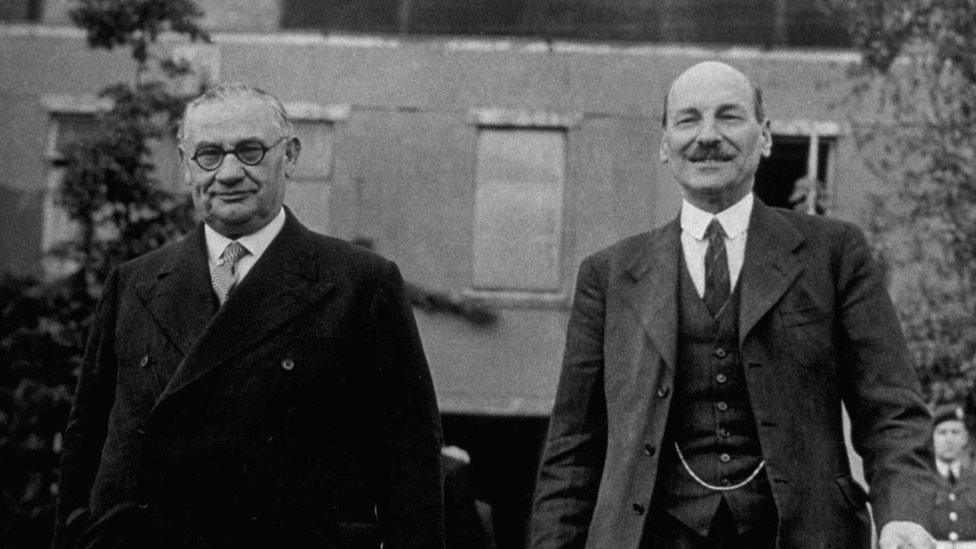
Ernest Bevin and Clement Attlee wanted an independent deterrent

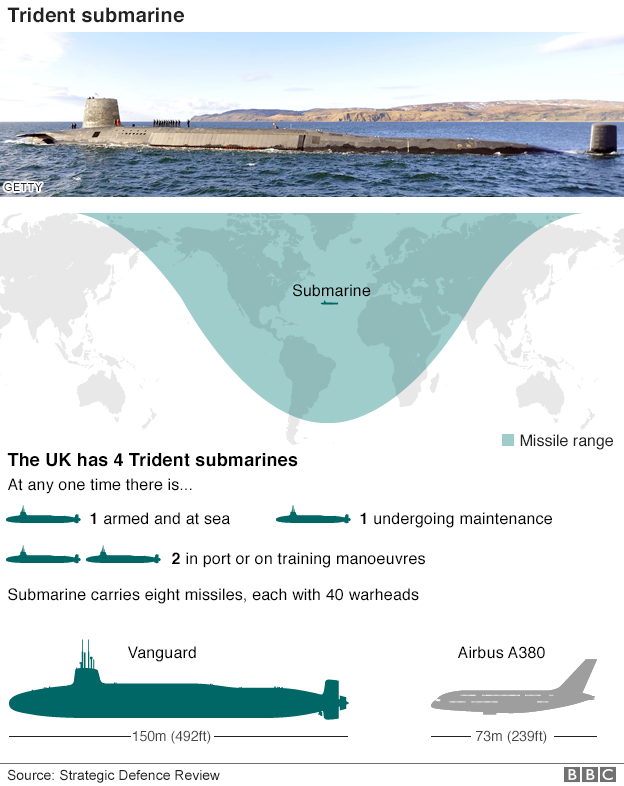
Find out more:

A nuclear fault line has cut through the party ever since the post-war Labour prime minister Clement Attlee decided that Britain should construct its own, independent nuclear deterrent.
The decision was never discussed by the full cabinet and that is a precedent which has been followed by Labour prime ministers whenever confronted with a serious split over nuclear weapons.
'Uncomfortable position'
It was not until 1983, under the leadership of one of the founders of CND, Michael Foot, that the party went into an election in support of unilateral disarmament, ready to do away entirely with nuclear weapons.
Under Neil Kinnock, in the following election in 1987, which again produced a Tory landslide, this was still Labour's defence policy. It was only 18 months after this defeat, with Peter Mandelson now firmly established as Labour's chief spin doctor, that the policy was finally changed.
To my surprise, Lord Kinnock revealed that throughout his first election campaign as Labour leader he was uncomfortable with the party's anti-nuclear policy. It seems he had wanted to change tack long before the 1987 election.
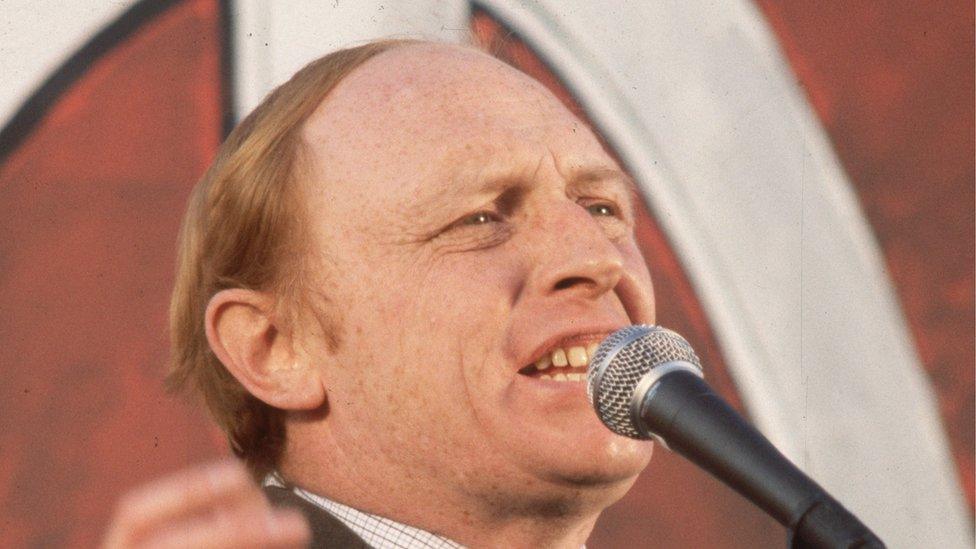
Neil Kinnock changed party policy on nuclear disarmament despite his previous support for CND
Lord Kinnock told me: "From the early 1980s really, I'd recognised the unsustainability of the unilateral nuclear disarmament policy, and I was in the very uncomfortable position of having to try to sustain it."
He admits that he decided to make the U-turn in large part because of Labour's electoral position. He is convinced that Mr Corbyn should follow in his footsteps.
"I am not looking for anyone to blame," he says. "I am seeking the exercise of the skills of leadership, and they do require a combination of strength and assertiveness, because parties that are ill-disciplined simply don't enjoy the confidence and support of the electorate."
In contrast, one of those involved in Labour's current policy review, Ken Livingstone, strongly backs Mr Corbyn's position. He is convinced that a majority of Labour MPs will support him over giving up nuclear weapons.
But Mr Livingstone argues that when renewal of Trident comes up in the Commons, Labour MPs should be allowed a free vote, and not forced to follow the leadership line. "This is not the New Labour era of Blair and Brown where people are intimidated and threatened," he told the programme.
All this, of course, is music to Conservative ears; to have the main opposition party badly split over a fundamental policy issue is just what they need to help counter the effect of their divisions over Europe.
And they hold one of the most important cards: the Tories will decide when the vote on Trident renewal will be held.
It may not be in their interest to do this quickly. David Cameron's referendum campaign will not be helped by highlighting Mr Corbyn's problems. After all, Labour's support for staying in the European Union could be crucial.
But at some point, almost certainly this year, the vote will come and it may not only decide the future of Trident, it could also decide the future of Jeremy Corbyn.
Analysis is on BBC Radio 4 on Monday 29 February at 20:30 or you can listen online or download the programme podcast.
- Published13 February 2016
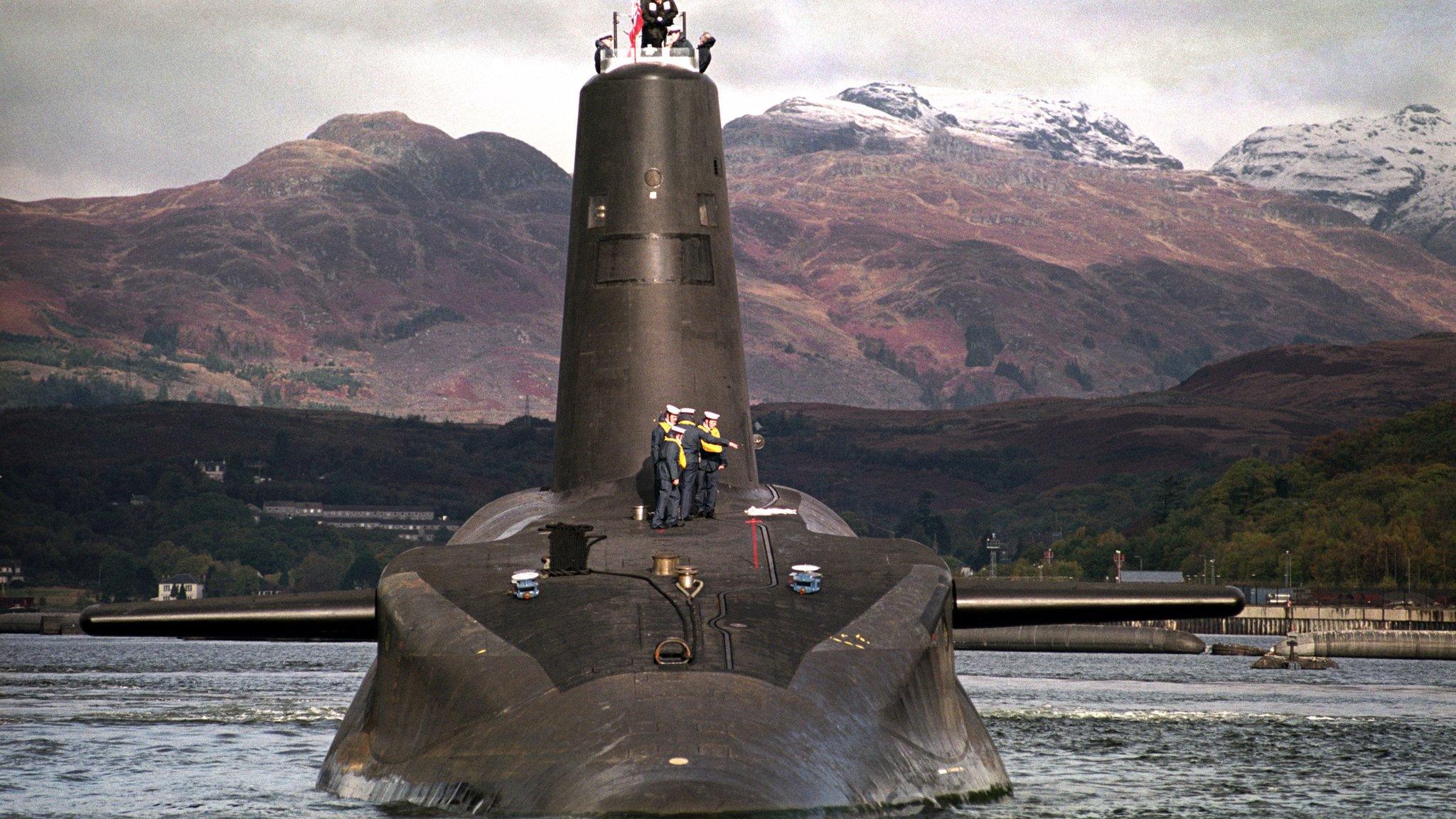
- Published11 February 2016
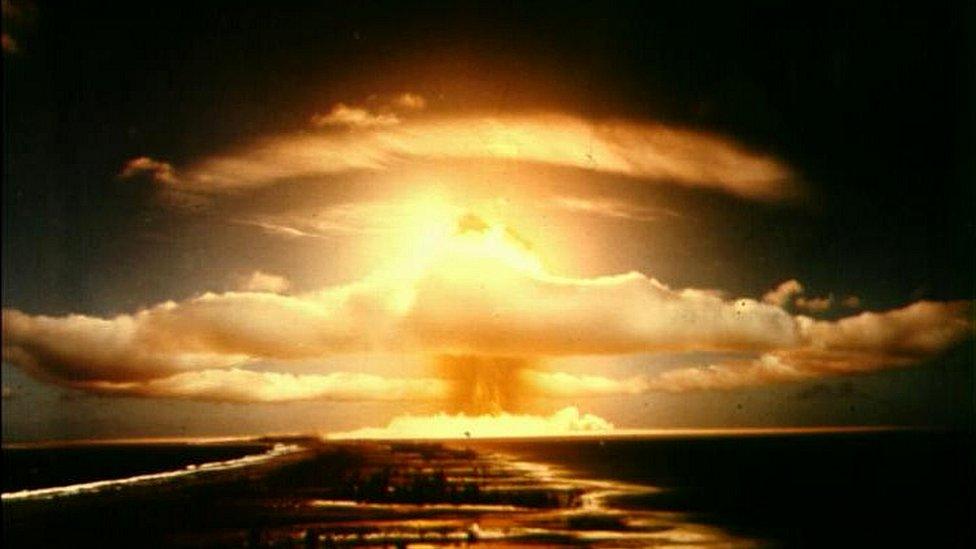
- Published9 February 2016
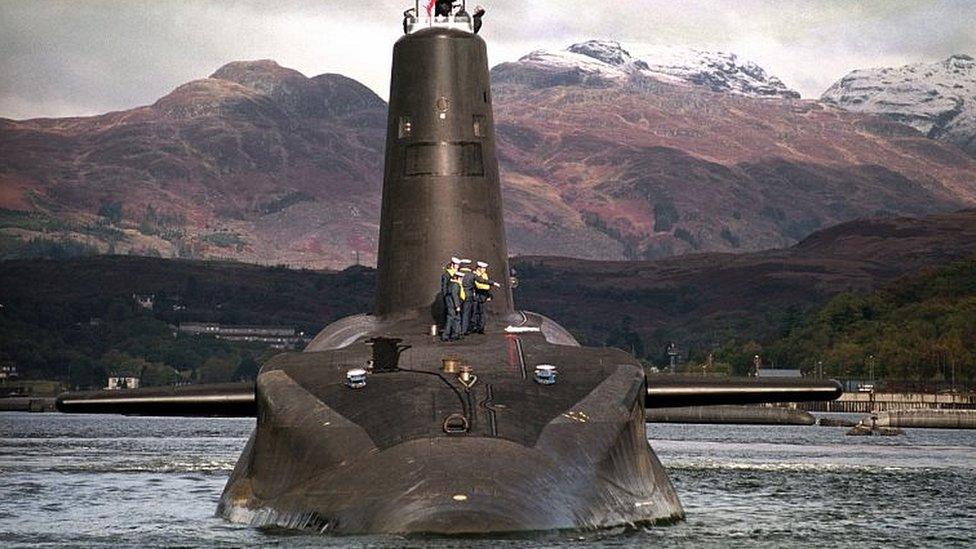
- Published17 January 2016
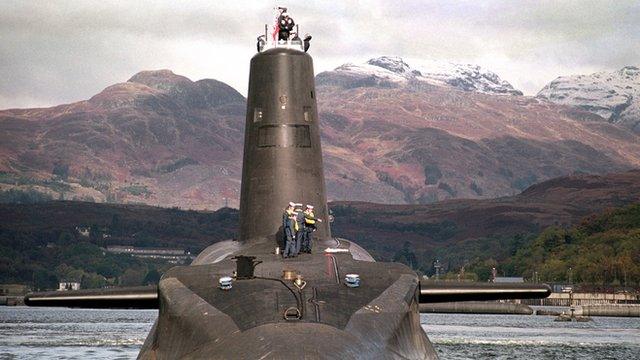
- Published23 May 2017
